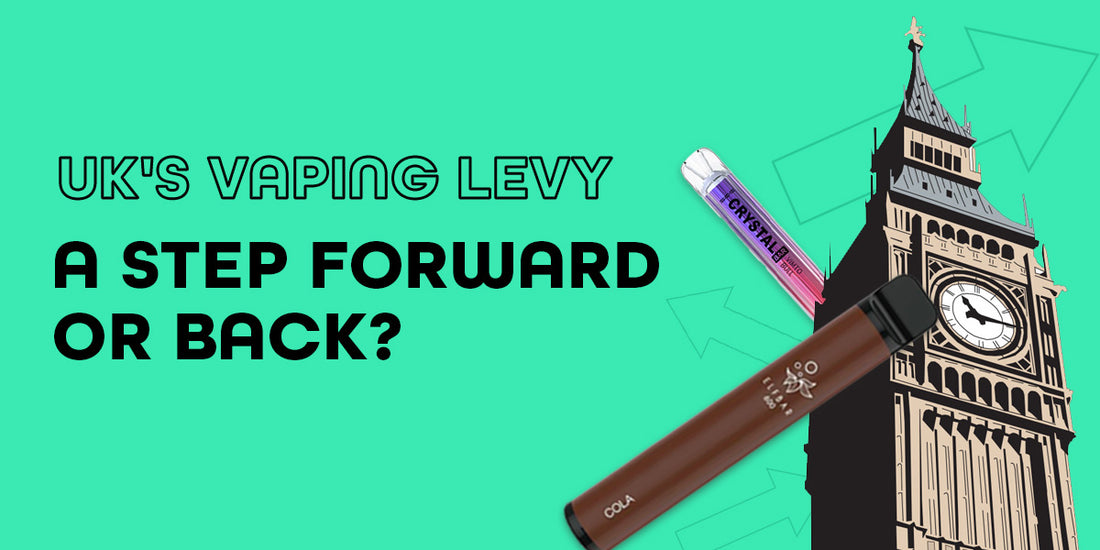In the quiet corridors of power, behind the iconic black door of 11 Downing Street, UK Chancellor Jeremy Hunt has unveiled a plan that ignites a fiery debate on public health and economic policy: the introduction of a tax on vaping products. This landmark decision, aiming to maintain a delicate balance between public health and fiscal responsibility, comes as a profound pivot in the UK's budgetary agenda for 2024.
With the steadfast rise of e-cigarettes as both a cessation aid for smokers and a troubling attraction for the youth, the government's new fiscal instrument is poised to make nicotine liquids subject to excise duties, marking a first in the history of British tax policy. This historic stride not only alters the economic landscape for vaping but also imposes a heavier tax burden on traditional tobacco products.
Chancellor Hunt, in his budget speech, positioned e-cigarettes as a double-edged sword: a potential ally in the battle against smoking and a siren call for the younger demographic with its 'pocket money' pricing. His solution? A calibrated tax structure that propels the price of high nicotine e-liquids beyond the casual reach of adolescents while encouraging smokers to pivot to less harmful alternatives.
The move is a calculated risk, stirring a cauldron of opinions. It's a dance on a tightrope between the highest tax burden since the aftermath of the Second World War and the envisioned health utopia where tobacco's reign is curtailed. The government's rationale is rooted in a one-off increase in tobacco duty, a gesture to ensure that smoking remains the costlier habit. With the echoes of Hunt's words on maintaining a "financial incentive to choose vaping over smoking," the changes are scheduled to ripple into effect from October 2026.
What does it entail?
The structure is straightforward yet strategic: vapes will be taxed at three tiers — nicotine-free, low nicotine, and high nicotine — with rates of £1, £2, and £3 per 10ml, respectively. It's a system that sends a clear message to manufacturers and importers: the cost of feeding nicotine habits is going up. As the Office for Budget Responsibility casts its analytical gaze on the figures, the vape tax stands as a potential fiscal champion with a forecast to amass £500m by the 2028-29 financial year.
However, the budget is more than a ledger of numbers; it's a statement of intent. Beyond the cold arithmetic, the Chancellor’s decision resonates with the hopes of public health campaigners and the anxieties of parents witnessing the vaping trend among youth. It's a decision that brings to the fore the government's intention to outlaw disposable vapes at the earliest convenience, adding another layer of complexity to the regulatory landscape.
The response from various corners has been as varied as it has been vocal. The Local Government Association commends the decisiveness, seeing the tax as a tool to dismantle the affordability of vaping products for minors. Yet, they petition for a targeted allocation of the tax revenue towards addressing environmental and public health repercussions.
The Chartered Trading Standards Institute has also chimed in, highlighting the tax as a means to bolster the crackdown on the shadowy market of illicit vapes. The underlying sentiment is clear: transparency and regulation can only strengthen the industry and safeguard the public.
In the trenches of enforcement, an additional £30m funding pledge stands as a testament to the seriousness of the government’s commitment. This infusion of capital is intended to arm agencies like trading standards with the necessary resources to uphold the new regulatory framework.
What does it look like right now?
At present, vaping products are levied a standard 20% VAT, with a reduced 5% rate for those categorized as medicinal. Yet, concerns simmer about the modest cost of vaping luring non-smokers and youngsters into a nicotine nexus, an issue the new tax seeks to address. It's a model that does not stand alone but joins the ranks of 15 European nations that have already ventured down this fiscal path.
In this saga of health, habit, and economics, the UK's vaping levy represents a bold gambit. It's a policy wrapped in controversy, carrying the potential to reshape consumer behavior, redefine industry standards, and recalibrate the fiscal scales. Whether this step is towards progress or regress is a narrative that will unfold in the ledgers of public health and the annals of economic history.
Tidal Vape’s Stance on Vape Tax 2024
In response to the recent announcement of the vaping levy by Chancellor Jeremy Hunt, we at Tidal Vape have been listening carefully, considering the implications for our customers and our business. As a retailer with more than 20 stores across the UK and an established online presence, we understand that this policy will have a significant impact on the industry, and we want to share our position on this matter.
Firstly, we acknowledge the government's intention to use the tax system to discourage vaping among young people. The health of our youth is paramount, and we support efforts to prevent underage use of vaping products. However, it's essential that in doing so, we don't inadvertently push adult smokers—who have found vaping helpful in quitting tobacco—back to cigarettes because of cost concerns.

.png?v=1693479229)
